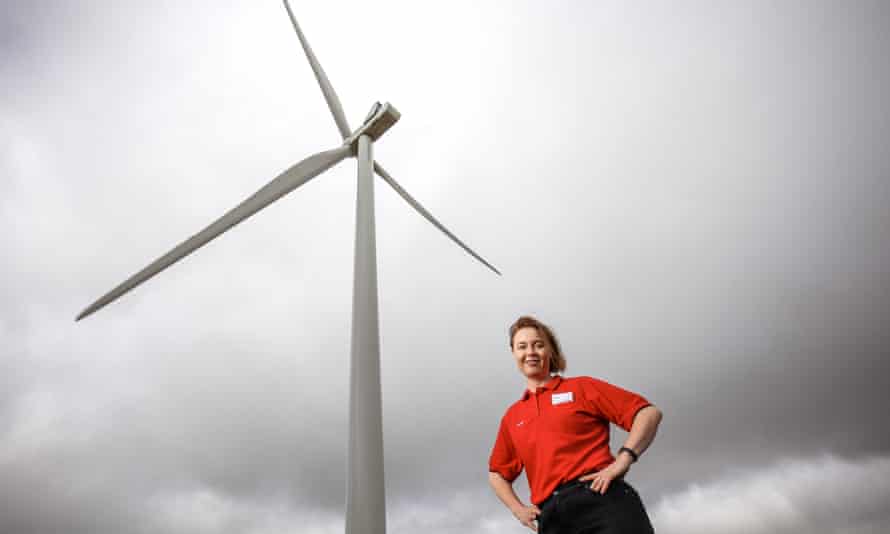Extract from The Guardian
Australian climate campaigners hail decision: ‘An announcement like this changes the national story’

Australian supermarket Coles has signed a deal to buy renewable energy from a Victorian windfarm.
Last modified on Fri 19 Mar 2021 12.02 AEDT
The supermarket giant Coles has pledged to source all its electricity from renewable sources across its brands by 2025 after signing another agreement to buy clean power from a Victorian windfarm.
The move means all three of Australia’s major supermarkets, including Woolworths and Aldi, will be sourcing all their electricity from renewables by 2025 at the latest.
Climate change campaigners said the announcement showed a significant shift was occurring across Australia’s corporate landscape.
Coles Group’s chief executive, Steven Cain, told Guardian Australia the commitment, which builds on the group’s previous deals to buy renewable power, was responding to calls from staff and customers but also shareholders and investors.
“There’s no doubt that in out shareholder meetings people are asking more questions about sustainability because investors around the world – who themselves have investors – are asking, are we putting our money to work in a responsible fashion,” he said. “There’s more money available to companies that are doing this.”
Coles said a deal announced on Friday to buy large-scale electricity generation certificates from Lal Lal Wind Farms meant 45% of its electricity consumption would come from renewables by financial year 2023.
From July 2022, more than 90% of Coles’ Queensland electricity would come from renewables. The group aimed to reach net-zero greenhouse gas emissions by 2050.
Cain said other moves included adding more doors to fridges to improve efficiency, replacing climate warming refrigeration gases and improving logistics so that vehicles returning to distribution centres did not return empty but picked up from suppliers along the way.
“Over time we will see the move to electric vehicles – that’s maybe not too far away,” Cain said, adding that autonomous electric vehicles and eventually drones would play a role in cutting future transport emissions.
Coles said it aimed to reduce greenhouse gas emissions caused directly and indirectly by its energy use by more than 75% by the end of financial year 2030, from a 2020 baseline.
Coles group includes its supermarkets, Coles Express outlets and the alcohol retailers Liquorland, Vintage Cellars and First Choice Liquor.
Woolworths Group, which includes supermarkets and other retailers including BWS, Big W and Dan Murphys, said in November all its electricity would come from renewables by 2025. Aldi says it is now buying enough renewable energy certificates to cover its electricity use from this year.
Greenpeace said Coles had become the first major retailer to sign a power purchase deal in 2019, when it agreed to source 10% of its electricity from three New South Wales solar farms.
The environmental group’s chief executive, David Ritter, said Australia could not underestimate the significance of announcements made by major businesses like Coles.
“We know Coles is one of the most trusted brands in Australia and so an announcement like this changes the national story,” he said.
“It says very clearly that big businesses trust their profitability and corporate reputation with clean energy because it’s a better option for them.
“This shows that we have a federal government that is isolated from where the mainstream of corporate Australia is heading.”
Greenpeace said it wanted Coles to now join an international alliance called RE100 of companies committing to 100% clean energy. Woolworths is an RE100 signatory.
A report for the UN on Friday ranked Australia as the worst of the world’s 50 largest economies for spending on a “green recovery” from the Covid pandemic.
The director of climate and environment at the Australasian Centre for Corporate Responsibility, Dan Gocher, said Coles’ previous emissions targets were “underwhelming” but “it has really delivered with this set of commitments”.
“Coles is not an insignificant emitter – it produced 1.6m tonnes of CO2e in FY2020 – and ranks in the top 50 of Australia’s largest polluters,” he said.
He said Coles needed to follow Rio Tinto, Santos and Woodside in adopting a pledge to allow its shareholders an annual vote on climate strategies.
“This latest flurry of climate announcements from Australian companies shows the penny has finally dropped on climate risk management. The federal government would be wise to take heed.”
No comments:
Post a Comment